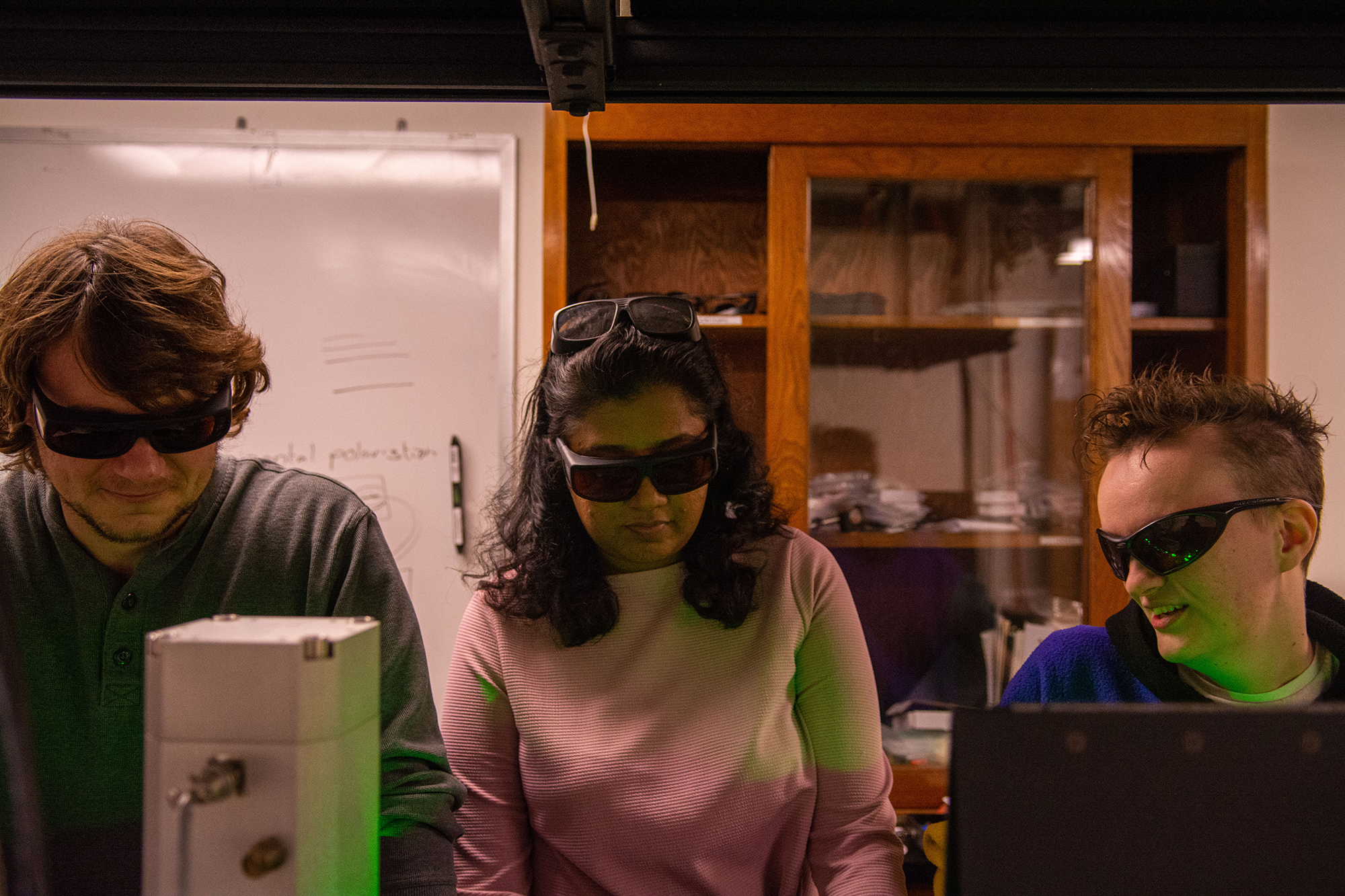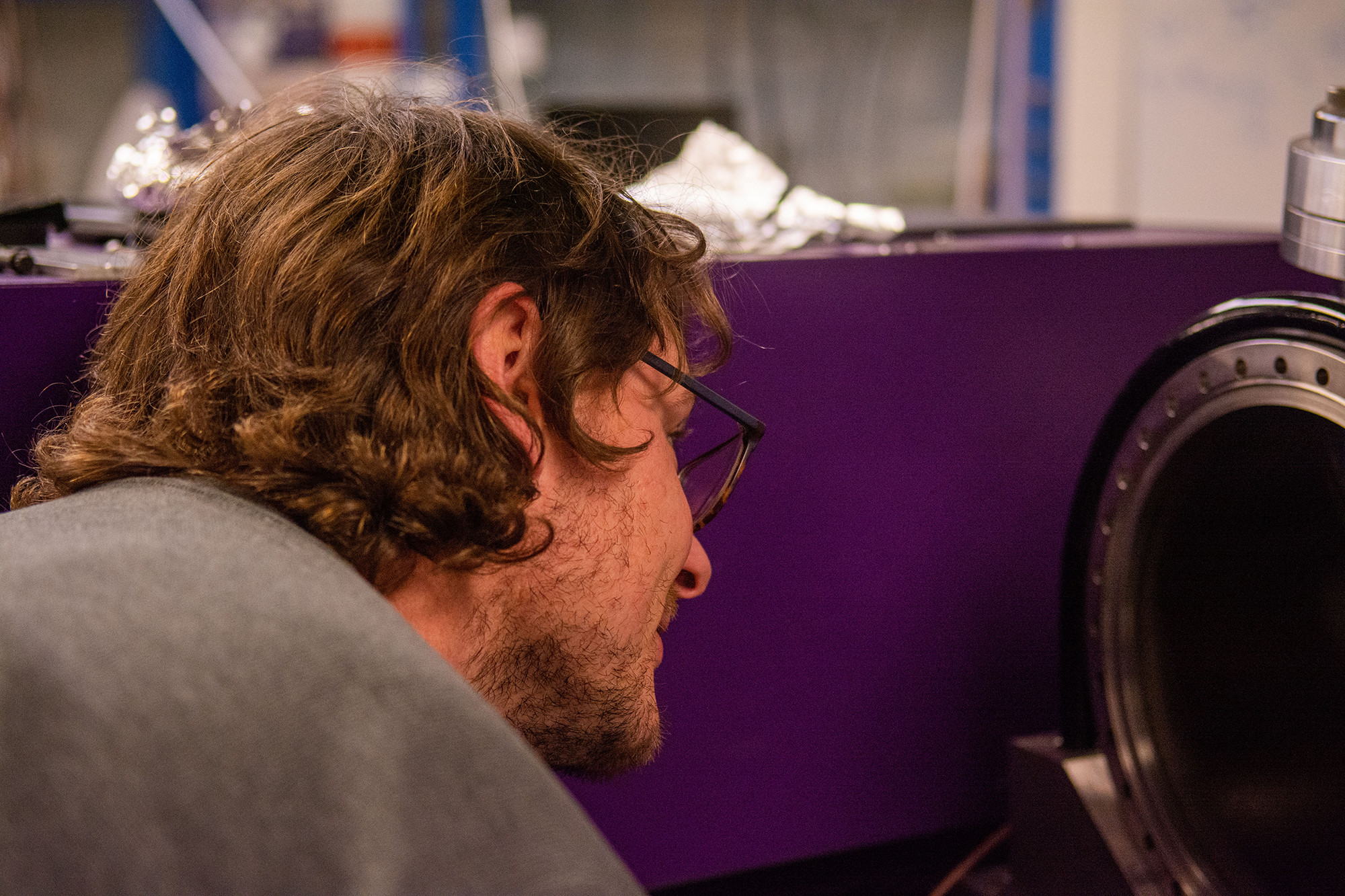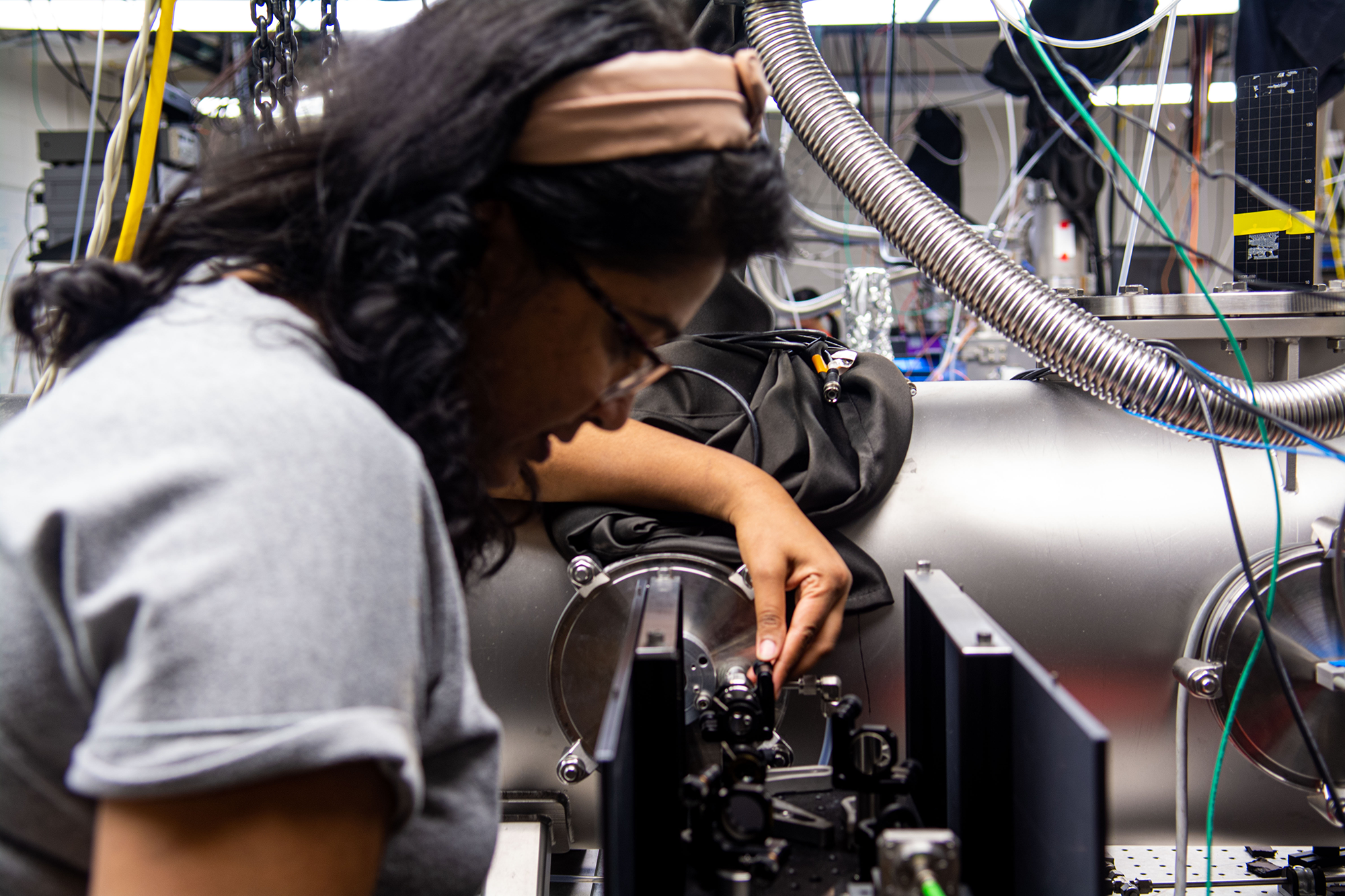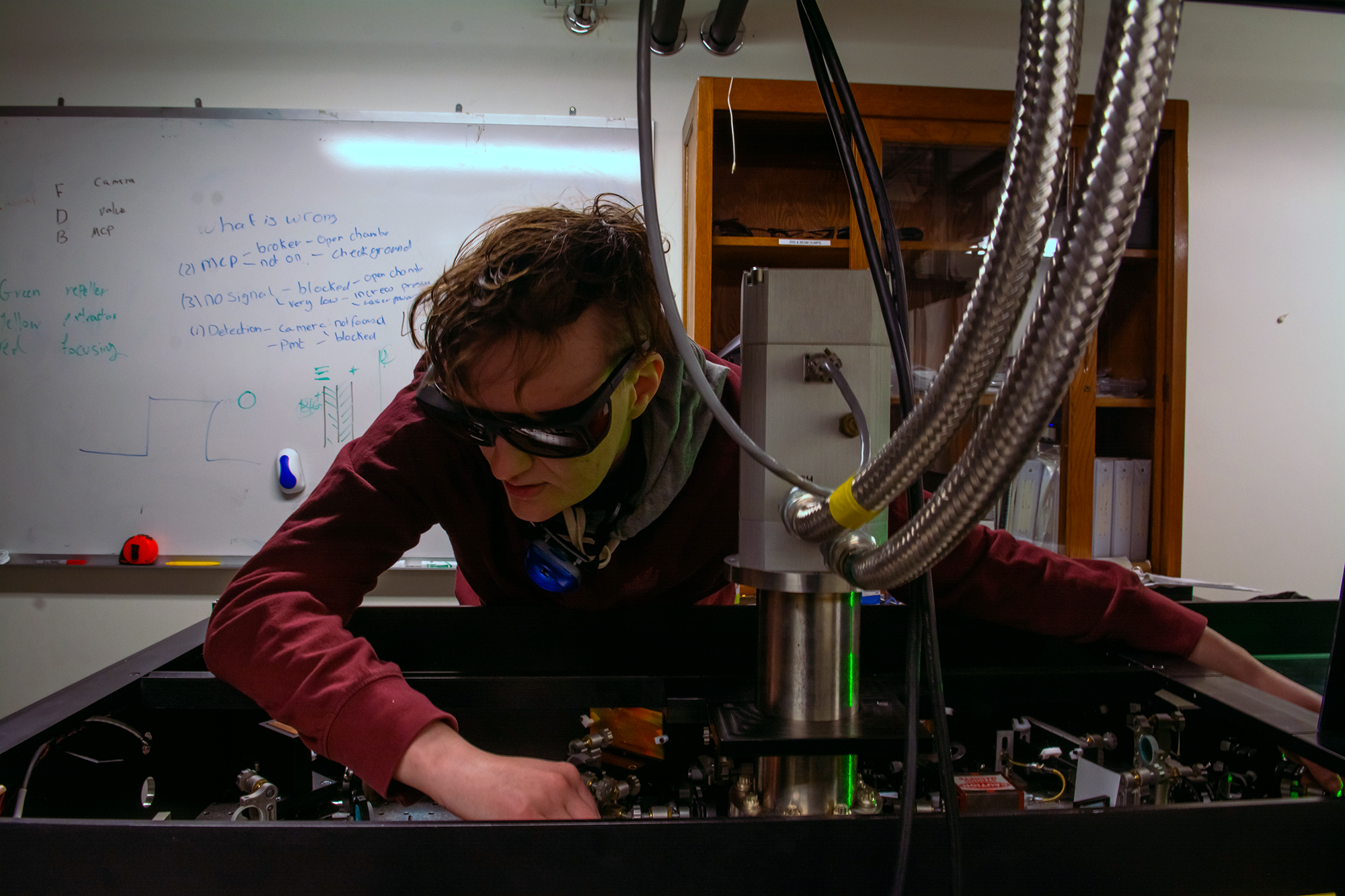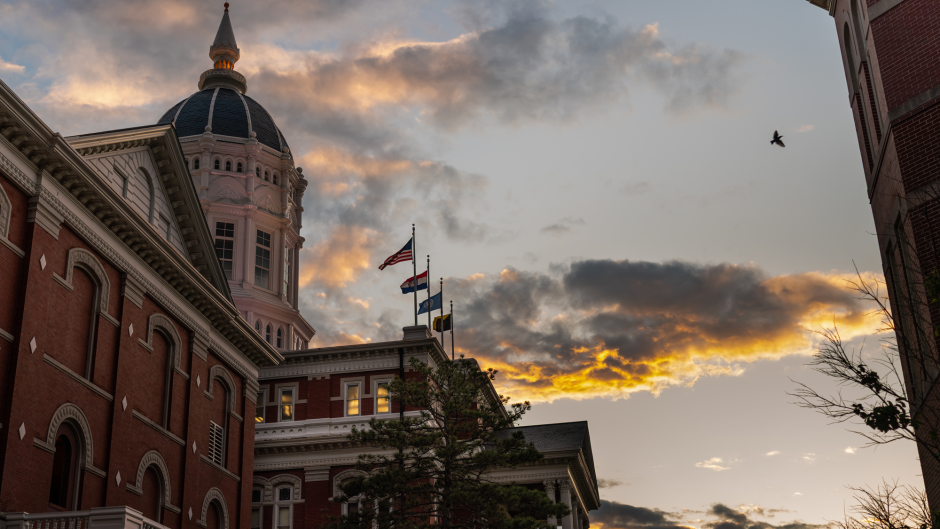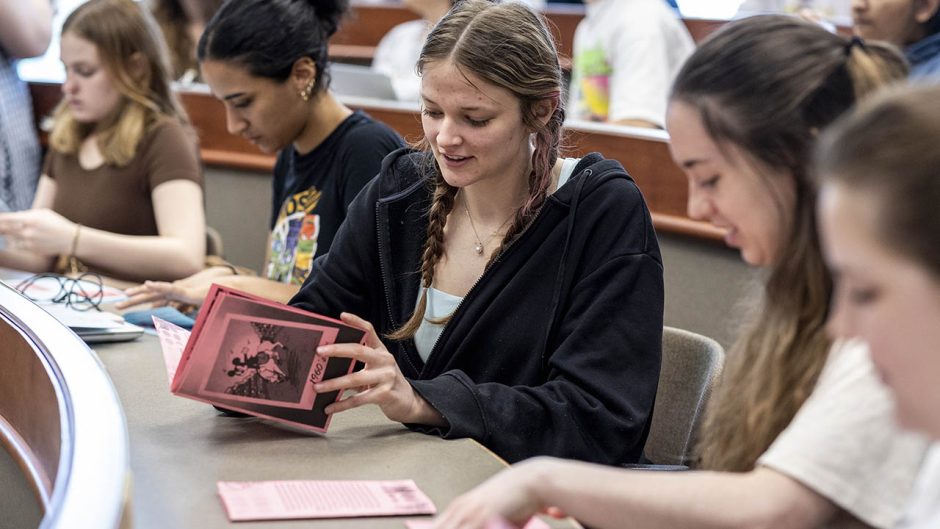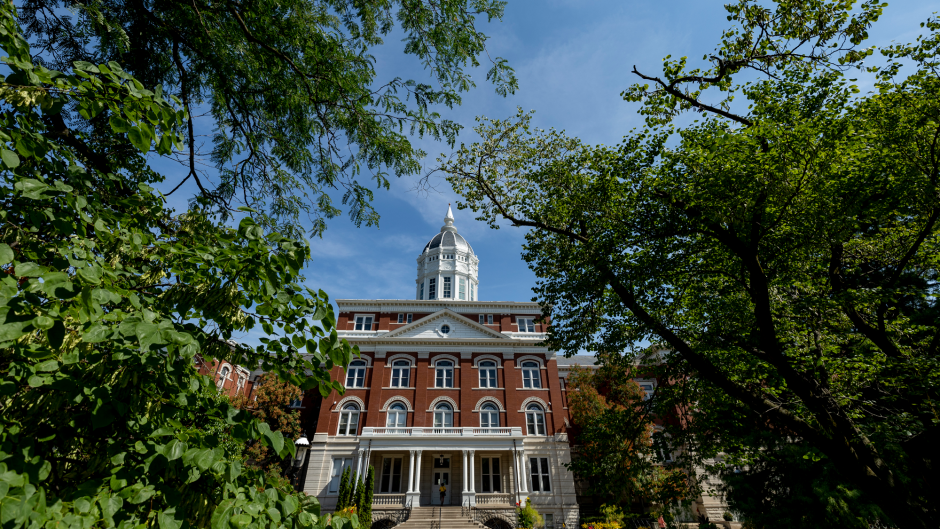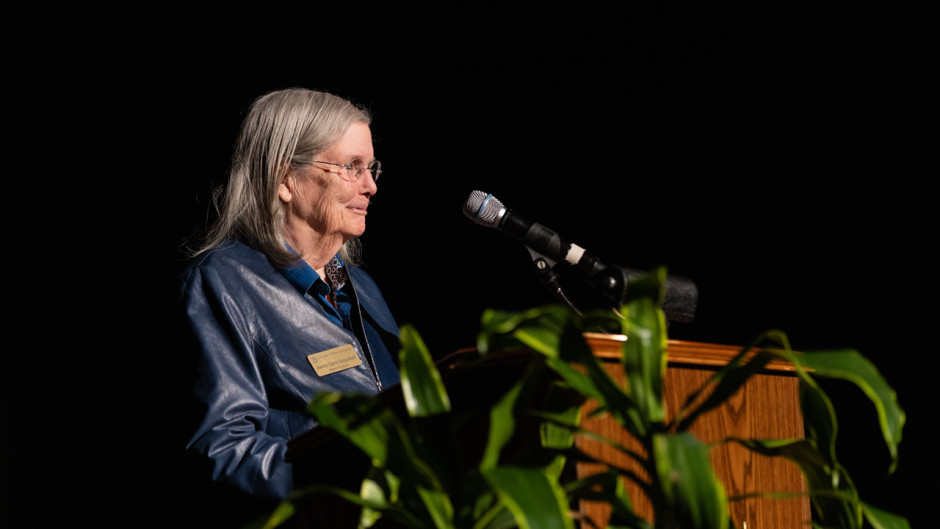Nov. 2, 2022
Contact: Uriah Orland, 573-882-6212, uriah.orland@missouri.edu
Earning a doctoral degree in a given field of study is the pinnacle achievement in academia for many scholars. But what happens after earning the title of “doctor” and receiving the coveted three letters — Ph.D.?
A common step is to work as a postdoctoral researcher — a career path more than 220 postdoctoral scholars are following at the University of Missouri.
“Postdoctoral scholars are essential to Mizzou’s research mission,” said Jeni Hart, dean of the MU Graduate School. “They work closely with research faculty on transformative discoveries and innovations that are at the heart of MizzouForward.”
To become a tenure-track faculty member, scholars in many disciplines often need more training, beyond the doctoral degree, according to Valli Sarveswaran, director of Postdoctoral Education.
“Almost all STEM disciplines and more and more social sciences require it,” said Sarveswaran. “If someone is interested in a tenure-track faculty job after receiving their Ph.D, they have to do this — conduct further research, publish papers, books or book chapters, garner patents and become ready to be a tenure-track faculty member.”
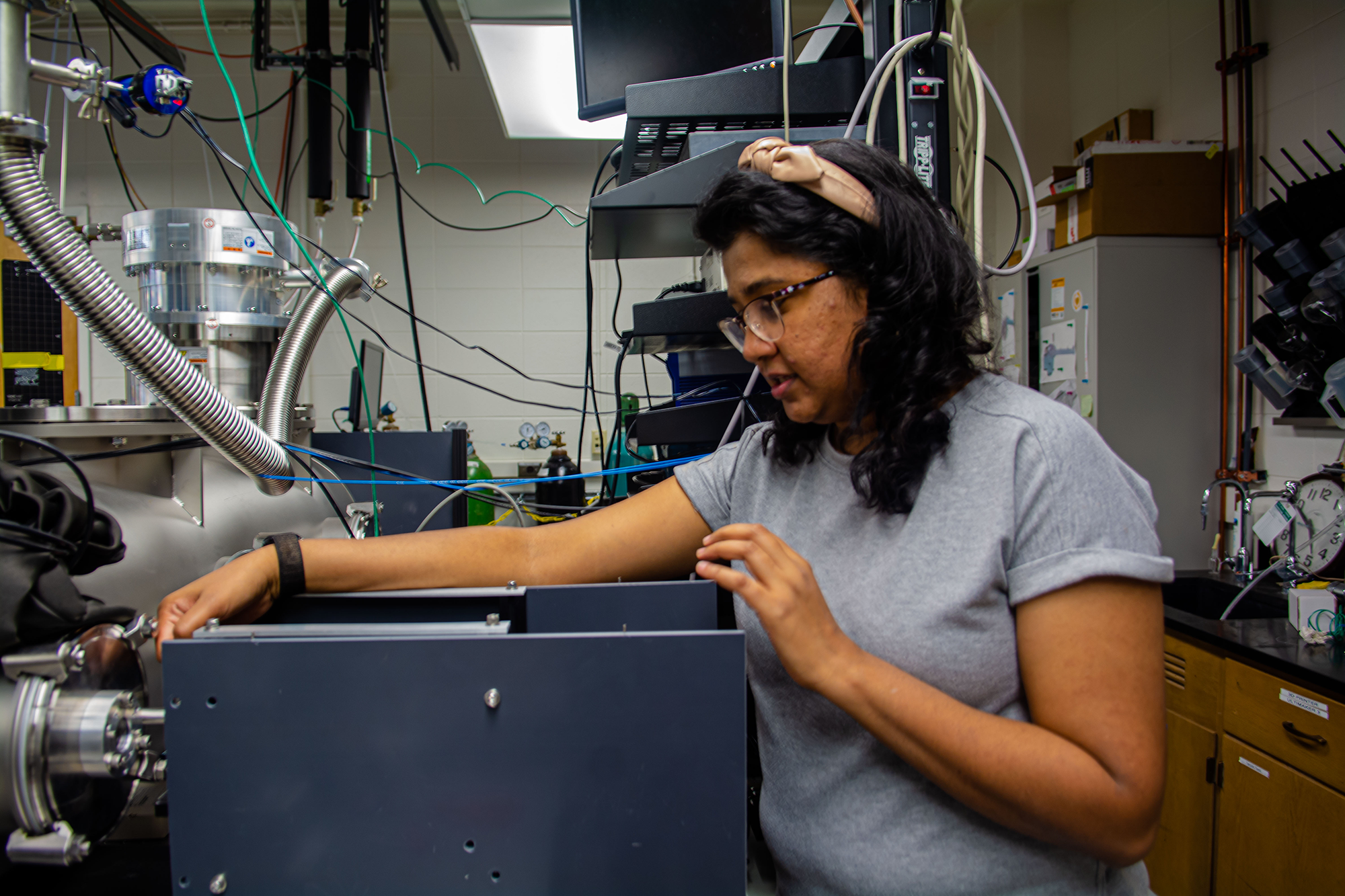
Shameemah Mohamed Thawoos, a postdoctoral fellow in the Department of Chemistry, adjusts a laser in Arthur Suits' research lab.
Postdoctoral positions are often included in the proposals of large research grants and are hired by the faculty researcher. In addition, MU offers two programs designed specifically to help faculty members attract and fund postdoctoral researchers.
The first is the Preparing Future Faculty-Faculty Diversity or PFFFD program, which brings in postdoctoral scholars with the intention of hiring them as faculty members at the end of a two-year postdoc program.
“This program is important because we bring them in, and they have opportunities to prepare for the transition to a faculty career — they teach, conduct independent research, supervise students and attend faculty meetings in their departments,” Valli said. “That experience is unique. There are other preparing future faculty programs around the country, but not all of them treat the postdocs like faculty members.”
The PFFFD program is popular among departments because it delivers results and is centrally funded by the Graduate School.
“Departments are really interested in this program because after they do the hiring process, the Graduate School pays the salary and benefits and professional development, thanks to a $1 million allotment from the university,” Valli said. “We’ve had 13 candidates who completed PFFFD. Nine joined MU as tenure track faculty members, and two more are at universities elsewhere. That’s nearly an 85% success rate.”
The second program is the Research Excellence Program (REP), which supports faculty with active federal grants or other outside funding.
“We support them by offering them one funded postdoc position — they find the postdoc and do the hiring, and then the Graduate School pays their salary and benefits,” Sarveswaran said. “We are in the second year of this program, and it continues to grow. We’ve selected 19 faculty under REP and currently have about eight postdocs on staff. This will grow to the full 19 by next year.”
Among those hired through REP is Casey Foley, a postdoctoral fellow in the Department of Chemistry, who is under the mentorship of Arthur Suits, Curators’ Distinguished Professor in the department.
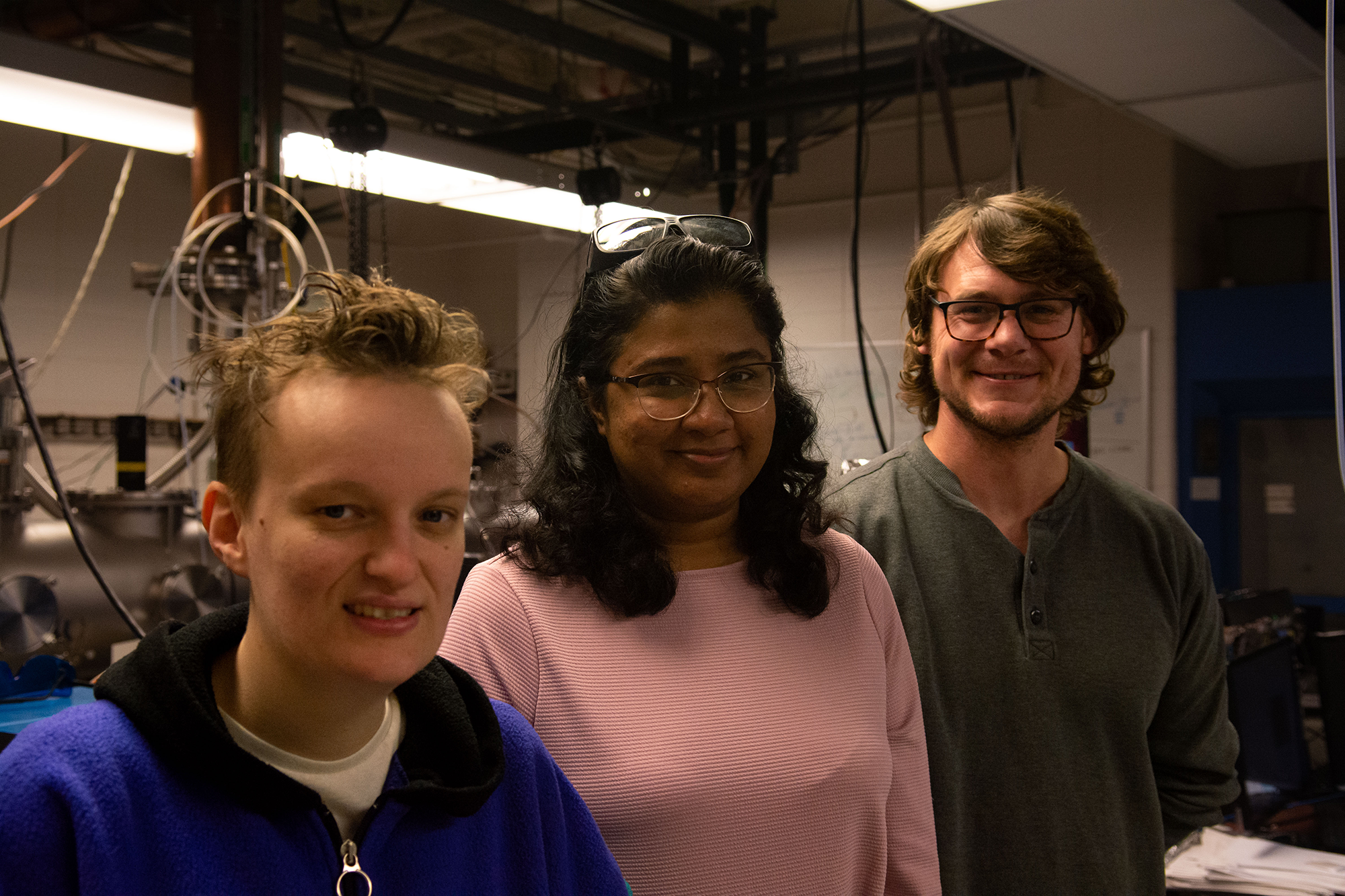
From left to right: Bryn Downes-Ward, Shameemah Mohamed Thawoos and Casey Foley are all postdoctoral fellows in Arthur Suits' lab.
“I saw this as good opportunity to advance my career and better prepare myself to apply for grants and early career awards,” Foley said. “We have many new experiments that require a significant amount of method development. I have the chance to learn new design, programming and statistical analysis tools that will be broadly applicable to whatever job I pursue next.”
Foley, who will finish his postdoctoral program in August 2024, also received a Ph.D from MU under Suits.
“Dr. Suits has done impactful research for decades in the physical chemistry area, and we have a good working relationship,” Foley said.
Suits currently mentors three postdocs and has mentored 15 over the past 25 years.
“The postdoctoral experience broadens a person’s background and shows they can be productive as a scientist in a new environment,” Suits said. “When I was a postdoc at Cornell University long ago, postdocs were almost non-entities. I am glad to see MU paying attention to postdocs and ensuring they have a place here.”

